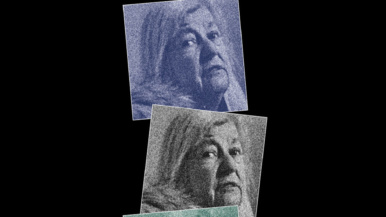Black Talk: Now Live
We are taking your questions about the trial now. Please go here.
Update: the discussion has now closed. Continue reading for the transcript.
gmarcell: No disrespect, Mr. Bell, but to the best of my knowledge, you’ve never before written about Conrad Black or matters of the law. Just wondering what compelled you to cover the trial in this way? And what qualifies you to do so?
Douglas Bell: I’ve worked as a business journalist for the Globe and Mail and Canadian Business. Beyond that, any journalist in Canada would give his or her eye teeth to cover just about any aspect of this story. He is in every sense a fascinating character. Because he is an important figure in the history of Canadian, British and American media, I’ve focused on the press coverage of the trial. By his very nature, Black influences the content of his own coverage. As to legal questions, I commend you to my friend Alan Gold.
carleyfortune: Objectively, what do you think the verdict will be? And, personally, what do you hope it will be?
Douglas Bell: Personally and objectively, I think Kipnis will go free; Atkinson and Boultbee will be found guilty on some, if not all, of the non competes. Black will be found guilty on obstruction and some non competes. If they stick him with the racketeering, I’ll be very surprised. On the whole, predicting these things is a fool’s errand and one for which I am consequently well suited.
susanmenchey: What is the racial makeup of the Conrad Black jury?
Douglas Bell: Depending on the alternates, a quarter to a third are African-America or Indian. The rest are Caucasian.
kdrummond: I’m wondering about the impact this trial—and the verdict in particular—will have on other Canadian executives. Do you predict that we’ll see big changes to how things operate or levels of accountability?
Douglas Bell: I liked what our business expert Roger Martin had to say on this: execs in public companies will have to ask themselves hard questions about how much is enough compensation given the accountability and scrutiny inherent in operating a public company.
lcasey: Was it the prosecution’s decision to try all four defendants at once? If so, was this an error in judgment by the prosecution as it allowed four attorneys to hack away at each of the government’s witnesses, compared with their solitary cross of the defendants’ witnesses?
Douglas Bell: You can read it either way. Yes, Black’s lawyers had four times as many opportunities to impeach government witnesses. But, as it turned out, where Black’s defence turns on repudiating Radler, Atkinson and Kipnis are asking the jury to believe that aspects of the same testimony exonerates them. On balance, I’d say the advantage goes to the prosecution.
jhume: Black’s trial has been taking place in the US, not in Canada. The two countries have very different attitudes towards business and the media, with American media being decidedly more partisan than its Canadian counterparts. If Black does end up spending time in the slammer, will this affect Americans’ views and/or criticisms of the country’s media and the way it operates? Also, Is this trial capable of setting a precedent in terms of white collar crime?
Douglas Bell: Black’s probably not a big enough story in the US to affect the partisan balance of power. To the extent that it does I think it’s a shot across the neo-con bow. The Wall Street Journal has barely touched the story because it’s radioactive both for their business and political agenda. In Canada, I think Ken Whyte, Maclean’s and, to some degree, the National Post have some ‘splainin’ to do. That Mark Steyn was allowed to cover the trial in the pages of the magazine without a slug is, um, problematic. As to precedents viz. white collar crime, see above.
d3lirius: In your opinion, is this case more about changing the laws governing corporate behaviour than making sure criminal behaviour is punished? It can be argued that the law, in its current form, actually inhibits executives and corporations from being socially responsible. Do you see the verdict (whichever way it swings) changing the way legislation creates new laws governing corporate behaviour?
Douglas Bell: I don’t think a criminal court is any place to change corporate behaviour, nor should it be. Roger Martin’s comment here the other day addressed this issue eloquently. Executive pay packages are way out of whack, and if there’s no effort at self regulation, politicians will act because they know the votes will be there if they do.
johnf: Earlier this week, some jurors told the judge that they were prepared to stay late to finish jury instructions. Does this mean that those jurors have already made up their minds? Will the timing of the jury deliberations, being so close to the July 4th U.S. holiday long-weekend, have an impact on the trial and which side could it benefit?
Douglas Bell: Jury duty is, in its way, a sort of depraved experiment in sensory deprivation. Any jury that didn’t want to move quickly and efficiently to meet their obligation wouldn’t be rational. That said, I don’t think it’s worth reading anything into it either way.
dr: I notice that Black is a member both of the Order of Canada and the Privy Council. Doesn’t this say a lot about the Canadian establishment and why he and others like him are seldom prosecuted in Canada?
Douglas Bell:Like all honourifics, the Order of Canada is up for debate. Black’s posting to the Privy Council is a puzzler since, in theory, it is an advisory council to the Queen of Canada—a country in which Black renounced his citizenship. I’ve actually tried calling the powers-that-be (the PMO and the Privy Council Office) to get an explanation. Two months later, I’m still waiting for a call back.





